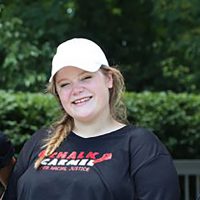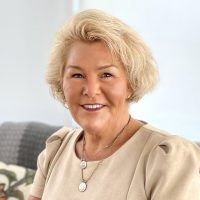Although it’s yet to again officially be on the agenda, diversity issues are taking center stage at recent Carmel Clay Schools board meetings.
The April 26 meeting featured a socially distanced packed house, with more speakers wanting to share their thoughts on diversity initiatives during the public comment portion of the meeting than time allowed, and the May 17 meeting appears set for the same fate — this time with protestors planning to gather outside, too.
Those on both sides bring unique stories and opinions to the debate, but among issues at the heart of the matter is whether CCS should have a diversity, equity and inclusion officer, a position added in late 2020. Many parents see the hire — funded through the 2019 school safety referendum — as crucial to creating a safe learning environment to help students reach their full potential, while others see it as CCS shifting its focus from academics to issues that are better taught at home.

Communities Allied for Racial Equity, a group founded in 2020 to raise awareness of and dismantle systemic racism in Hamilton County, urged those who support DEI initiatives to show up early for the May 17 school board meeting with signs stating their position for a silent demonstration. CARE CEO and co-founder Ashten Spilker said she sees the pushback against the DEI officer in Carmel as part of a broader effort to eliminate similar initiatives in school districts nationwide.
“They’re using a lot of buzzwords and fear tactics, but we think people aren’t as opposed to DEI as they may believe if they just had the facts of what’s happening at the schools,” Spilker said. “A lot of times, they’re getting snippets of things out of context and they’re being told not to believe what the district is telling them.”
Less than a month ago, several parents and community members founded Unify Carmel, a nonpartisan group “dedicated solely to improving our community” by urging CCS to “focus on academic excellence and achievement for all students,” according to its website. The group denies that systemic racism is a problem in Carmel but believes DEI initiatives are creating racial division, encouraging discrimination against nonpreferred groups.

“We do believe in diversity. That’s not what we’re against,” said Paige Miller, a spokesperson for Unify Carmel who retired in May 2020 after 33 years as a CCS teacher. “This has nothing to do with racial equality and what’s going on in the world. It has to do with what’s going on inside our children’s classrooms.”
Strong opinions on the matter are not limited to Carmel. Parents throughout Hamilton County have expressed similar concerns about and support for DEI efforts in recent weeks, and several state legislatures across the nation are addressing it as well.
“I’m amazed. I’ve been in academia for 15 years and I’ve never seen such hoopla, for lack of a better word, over something in education,” said Cleveland Hayes, an associate dean of academic affairs at the Indiana University School of Education in Indianapolis.
Among the top concerns of many parents in Carmel and beyond opposed to DEI efforts is that critical race theory is indoctrinating children in Carmel schools under the guise of social/emotional learning and diversity initiatives.
According to a petition started by members of Unify Carmel, they oppose critical race theory because they believe it treats people as categories rather than unique individuals, results in suppression of free speech and leads to increased suspicion and resentment among students.
Critical race theory, which promotes the idea that white supremacy is part of the U.S. cultural fabric, originated in the 1970s, but it didn’t become widely known outside of academia until 2020 after then-President Donald Trump prohibited federal employees from undergoing critical race theory training.
Hayes, who has studied critical race theory, said it offers a framework for recognizing voices and experience of people of color in the U.S. He said the theory has several tenets, but the one he feels most people are upset about is recognizing that racism played a key role in U.S. history and that it impacts aspects of daily life for people of color.
Hayes also conducts diversity training, and he said DEI efforts should not be assumed to be the same thing as critical race theory.
“I would stake my academic reputation on this: Critical race theory as a framework is not taught in K-12 schools in the U.S.,” he said. “Critical race theory conversations are taught and developed at the doctoral level.”
Elements of the theory, however, could be presented in grade school classrooms, he said.
“One of the tenets of critical race theory is recognizing the experiential knowledge that people have,” he said. “When I’m telling you, ‘I’m having a racist experience,’ that is my experience. Just because you don’t see it or experience it doesn’t mean it needs to be minimized. So, indirectly, I could bring it in, but I never use that language.”
At the April meeting, CCS Supt. Michael Beresford said that the district does not teach critical race theory and that the DEI officer does not select or develop curriculum.
Miller, a 1983 CHS graduate, agreed that critical race theory is an ideology that is not directly being taught in Carmel. However, she said social/emotional learning initiatives are the tool that brings the ideology to the classroom, in part by identifying students as “oppressed” or an “oppressor” when dealing with conflict.
She said the goal of Unify Carmel is to rid CCS of social emotional/learning and the DEI position, both of which she believes lead to the opposite of what they claim to promote.
“This whole paradigm is what’s dividing us,” Miller said. “Look at the two groups in Carmel right now. You think DEI is bringing anybody together? I like to refer to it as D-I-E, because it will kill this community.”
Spilker disagrees, saying that CARE and the DEI position exist to create a safe and welcoming environment for the entire community.
“We don’t feel like this is an ‘us versus them’ issue,’” she said. “We truly want unity and inclusion for everybody.”
CCS declined interview requests to discuss the matter with Beresford and DEI Officer Terri Roberts-Leonard.


